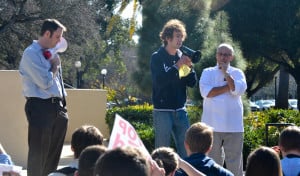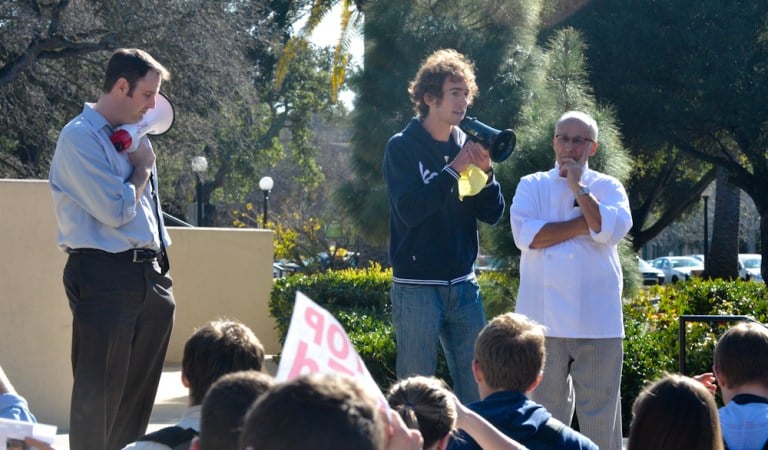Suites Eating Clubs will remain a student-run entity next year, an outcome reflecting a series of weekly negotiations between Residential Education (ResEd) officials, Suites residents and Governor’s Corner Dining Societies (GCDS) leadership.

ResEd had initially planned to contract out the eating clubs’ operations to an outside vendor, a decision that met with extensive student and community criticism and even the formation of an endorsing group to advance greater student autonomy through the ASSU.w
Nate Boswell ’99 M.A. ’09, associate dean of ResEd, confirmed that Suites will be allowed a student CEO, CFO and eight student managers next year, as well as retaining the option to rehire the current four chefs. Applications for student leadership positions are currently being reviewed.
The negotiations also resulted in the decision to create a board of directors to oversee Suites. That board will most likely include former eating club managers, CEOs, CFOs, members of the ASSU and a University representative.
Boswell said that the conversation on Suites’ leadership structure is ongoing and will reflect the input of various University offices beyond ResEd.
“This new entity … will be stronger and more set up to exist for a very long time because this has been a rigorous process [and] because it’s been hard at times,” Boswell said.
Traditionally, Suites leaders would have selected the incoming CEO, CFO and student managers by the end of winter quarter before training them throughout spring quarter and undertaking the transition by the end of the school year.
Miles Unterreiner ’12 M.A. ’13, a Daily staffer, credited the response to his long-form article in The Daily as providing the impetus for successful negotiations.
“I was blown away by the response of the rest of the community at Stanford because when I published the article, initially I thought it was going to be a Suites issue and that Suites people would be upset but no one else would really care,” Unterreiner said.
Unterreiner added that the breadth of support from across campus, including alumni, and ResEd’s openness to negotiations made the movement to retain student management at Suites a unique success.
“This is the first time in memory, that I can remember, that students have really made their voices heard and they’ve been listened to so quickly and in such a comprehensive manner,” Unterreiner said.
Boswell attributed the reversal of ResEd’s decision to a variety of reasons, including suggestions from Provost John Etchemendy Ph.D. ’82 to sit down with students and reach a mutually agreeable decision while acknowledging adjusted University expectations.
“Our orientation is that of, ‘Okay, you want independence, it is important to you … you’ve got to earn it,’” Boswell said.
He added that the negotiations over the last few weeks went well.
“We’re in a very different place now than we were two years ago,” Boswell said. “Some of that is because of efforts we put in, and some of that is because of the student voice and what Miles [Unterreiner] has said and done — whether or not I always agree with it.”
Suites residents will currently not be offered positions as hashers next year, though Unterreiner said that may change.
“I think that’s important but it’s a detail that can be worked out in the future,” Unterreiner said.
Fully restoring Suites’ independence will also require the creation of a federal and state tax ID number by August in order to operate as an incorporated vendor on campus, in a process that Unterreiner described as expensive.
Viraj Bindra ’15, chair of the ASSU Undergraduate Senate Student Life Committee and a Suites resident, has coordinated discussions within the Senate and its Appropriations Committee geared towards financially supporting Suites’ efforts.
“While the Undergraduate Senate has not definitively decided to what degree it will support [GCDS]’s efforts to get a federal tax ID, we are exploring a few different avenues and should have an update in the near future,” Bindra wrote in an email to The Daily.
